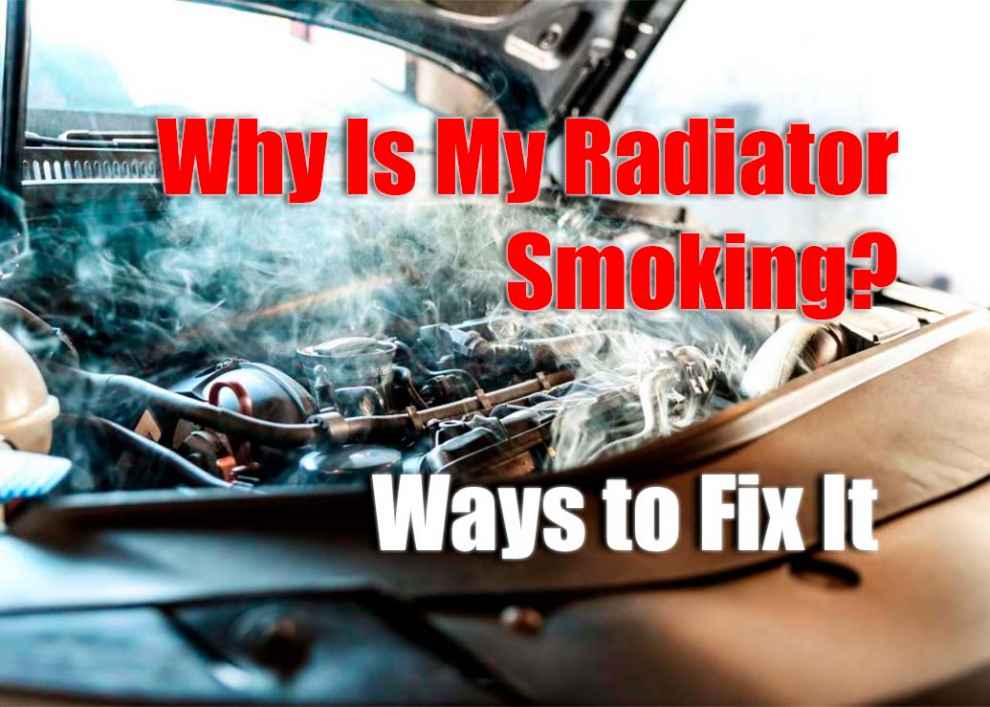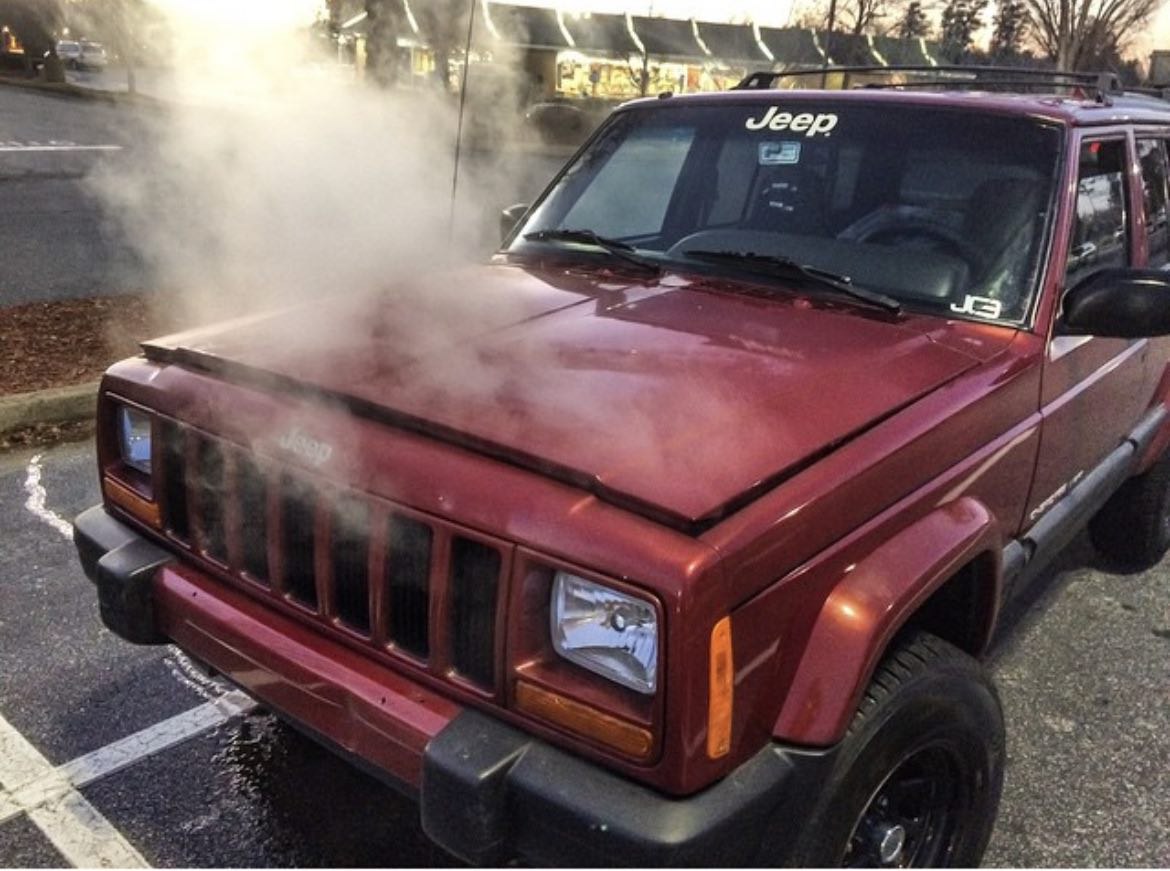If you notice your car radiator is smoking, it is important to take steps to diagnose and fix the issue. Smoking can indicate a major problem with your vehicle’s cooling system, which can cause further damage if not addressed. Fortunately, most issues with a smoking radiator can be easily fixed and will not require major repairs. Why is my radiator smoking? In this article, we will explore the potential causes of a smoking radiator, discuss whether driving with a smoking radiator is safe, and provide troubleshooting tips to help you address the problem.
Causes of a Smoking Radiator
A smoking car radiator in your Jeep can indicate underlying engine and cooling system problems. It’s important to understand the various causes of this problem so you can take the appropriate steps to fix it.
-
Coolant Leak: A coolant leak is the most common cause of a smoking car radiator. Coolant leaks in a Jeep can occur for several reasons, including a damaged radiator hose, a cracked radiator, a faulty water pump, or a leaking gasket. Smoke and a distinct sweet smell can be caused by leaking coolant onto hot engine parts.
-
Overheating Engine: An overheating engine can also lead to a smoking radiator. In a Jeep, the engine can overheat due to various factors, such as a malfunctioning thermostat, a faulty radiator fan, a blocked radiator, or insufficient coolant levels. When the engine overheats, the coolant may boil, producing steam and smoke.
-
Faulty Radiator Cap: The radiator cap is crucial in maintaining the appropriate pressure within the cooling system. If the radiator cap is faulty or not sealing properly, it can cause the coolant to boil and create steam. This steam can escape through the radiator cap, resulting in a smoking radiator.
-
Engine Oil Leak: In some cases, an engine oil leak can be the source of a smoking radiator. If engine oil leaks into the cooling system, it can mix with the coolant and cause it to burn, resulting in smoke. Common causes of engine oil leaks in a Jeep include a damaged head gasket, a cracked engine block, or a faulty oil cooler.
-
Cooling System Blockage: A blockage within the cooling system can restrict the flow of coolant, leading to overheating and a smoking radiator. Deposits, debris, or corrosion can accumulate in the radiator, hoses, or water channels, impeding the proper circulation of coolant.
-
Electrical Issues: Electrical problems, such as a malfunctioning temperature sensor or a faulty radiator fan relay, can disrupt the cooling system’s operation. If the radiator fan fails to turn on when needed, it can result in an overheating engine and a smoking radiator.
Can I Drive with a Smoking Radiator?
Driving with a smoking radiator is not recommended and can lead to severe consequences for your vehicle. When your radiator emits smoke, it indicates an underlying problem within the cooling system that requires immediate attention. Ignoring a smoking radiator may exacerbate the issue, causing further damage to the engine and potentially leaving you stranded on the side of the road. In addition to the risk of engine damage, an overheating engine can result in a loss of power, reduced fuel efficiency, and increased chances of a breakdown. Therefore, it is crucial to prioritize safety and address the smoking radiator concern promptly. Pull over to a safe location, turn off the engine, and seek assistance from a professional mechanic to diagnose and rectify the problem before considering driving further. By taking proactive measures and promptly resolving the smoking radiator issue, you can prevent costly repairs, ensure the longevity of your vehicle, and prioritize the safety of yourself and others on the road.
Troubleshooting a Smoking Radiator
If your Jeep radiator is smoking, it is important to promptly locate and address the underlying issue. To troubleshoot a smoking radiator, refer to your vehicle’s owner’s manual and follow the troubleshooting steps provided. Start by checking your coolant levels and looking for any signs of leakage. If you find that coolant levels are low or there is evidence of an external leak, top up the coolant as necessary while addressing the leak accordingly. Then, inspect all hoses connected to the radiator for blockages or wear and tear. Lastly, check if any electrical components associated with the cooling system malfunction or need replacement. Once you have identified and rectified all issues related to a smoking radiator, you should have your vehicle inspected by a professional mechanic before driving on the road again. If you’ve checked everything and your radiator still smokes, consider researching the Best Radiator for Jeep. A suitable replacement can improve your Jeep’s cooling performance.
Conclusion
Smoking from the car radiator can indicate a serious problem with your vehicle’s cooling system. Understanding the possible causes of a smoking radiator and taking proactive steps to troubleshoot and fix the issue is important. In most cases, minor repairs or adjustments will be required. However, driving with a smoking radiator should always be avoided as it can cause further damage and put you at risk of a breakdown. By taking these measures, you can ensure the safety of yourself and others on the road while maximizing the longevity of your car’s engine.

 Coolant Leak: A coolant leak is the most common cause of a smoking car radiator. Coolant leaks in a Jeep can occur for several reasons, including a damaged radiator hose, a cracked radiator, a faulty water pump, or a leaking gasket. Smoke and a distinct sweet smell can be caused by
Coolant Leak: A coolant leak is the most common cause of a smoking car radiator. Coolant leaks in a Jeep can occur for several reasons, including a damaged radiator hose, a cracked radiator, a faulty water pump, or a leaking gasket. Smoke and a distinct sweet smell can be caused by
Add Comment